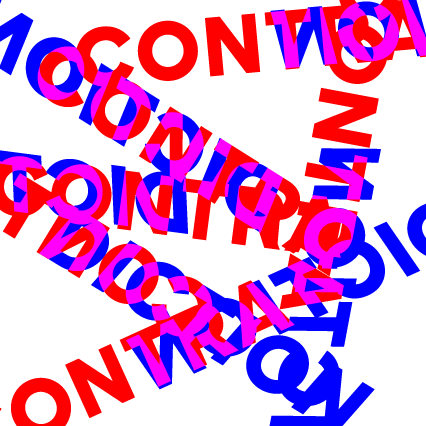Talks
Past Events
-
 Reconstrucción de la identidad a traves de lazos afiliativos en las obras de Lucía Mbomío Nsué y Deborah Ekoka
Reconstrucción de la identidad a traves de lazos afiliativos en las obras de Lucía Mbomío Nsué y Deborah EkokaTalk at the The 49th Annual Meeting of the African Literature Association: Filiations and Affiliations. Bonds, Entanglements, and Social Networks in African Literatures and Cultures.
-
 Possibilities and Limits of a Decolonized Anthropology from the Perspective of African Philosophy
Possibilities and Limits of a Decolonized Anthropology from the Perspective of African PhilosophyIn this dialogue with renowned philosopher Souleymane Bachir Diagne, we will take up central themes in his work and connect them to ongoing conversations about anthropology and decolonization. Topics include: language and life, the postcolonial and the decolonial, Africa in/and the world, philosophy and anthropology. The session will begin with an interview and conversation with Diagne and then open the dialogue to the audience.
-
 The Czechoslovak Exile in Vienna (1968–1989) as a Space of Dissension
The Czechoslovak Exile in Vienna (1968–1989) as a Space of DissensionAt the Panel “Memory, Conflict and Nation-Building” of the World Convention of the Association for the Study of Nationalities (ASN) 2024
-
 Externalisierte Unfreiheit: “The Afterlives of Slavery” als Brennglas ungleicher Freiheit
Externalisierte Unfreiheit: “The Afterlives of Slavery” als Brennglas ungleicher FreiheitTalk at the Bremen Colloquium on Political Theory
-
 Contradiction’s Effects
Contradiction’s Effects
-
 Für Widerspruch sorgen. Impulse and Talk
Für Widerspruch sorgen. Impulse and TalkIt is almost a commonplace that we live in contradictory times. But what does it mean to take social contradictions seriously? Which contradictions must be endured – and which not – in a democracy? Is every form of contradiction already emancipatory, and if not, where do we draw the line? How does contradiction become a collective, democratic practice that is not limited to a “yes, but…”?
Carolin Zieringer investigates these and similar questions from a radical-democratic and queer-feminist perspective. Taking Jala Wahid’s play with ambiguities and emotions as a starting point, Carolin Zieringer sets out to discuss how we can remain open to contradictions and uncertainties in a world permeated by exclusion and violence, what role care plays in this, and when it is structurally impossible to care.
-
 Bänkelsang to a binaural beat – The issue, the method of delivery, agnotology and the contradiction of selling ‘rodenticide’
Bänkelsang to a binaural beat – The issue, the method of delivery, agnotology and the contradiction of selling ‘rodenticide’We (Laura Ziegler & Dean E. Stephanus) invite you to think with us as we invoke the legacy of the bench singers “Bänkelsang” that were active in the region that would become Germany from at least the 17th century until the practice was banned by the Nazi’s. Acting as proto journalists, researchers and performers, the bench singers gathered news stories and histories that alerted people to what was going on, information that would have been otherwise concealed, censored and often inaccessible by the subordinate masses (class, race, gender) due to illiteracy.
We use the motif of the bench singers to revisit an old question in the humanities and political organising, how to methodologically find ways to make accessible, communicate, and share information with the mass public(s). And importantly we wrestle with the contradiction of that aim. We refer to this as our rat poison, a reference to times when bench singers of old sold rodenticide to make money for their itinerant performances. We would like to engage the ways in which real-life maintenance of the body contradicts the aims set out to liberate the body.
The talk will include links to current questions we debate as cultural workers and humans. Through the use of zine making we tease out certain topics, one example of a zine that will be presented in the talk is through the medium of biography we discuss the life of Mabel Grammer, a black journalist who played an important and little-known role in the “Brown Baby Plan” of post-war Germany. This was a private adoption agency that arranged the adoption of over 500 Afro-German children to African-American couples, particularly in the 1950s. And then link it to a so-called ‘brown baby’ who lived a life in Germany deeply affected by race, Robert Pilatus. Pilatus was a member of the once popular Afro/Pop duo known as Milli Vanilli.
Our approach is usually dialogical. We speak in a down-to-earth manner and encourage all participants to feel free, to question or challenge us, to add or think with us throughout the talk.
-
 Hoffnung in hoffnungslosen Zeiten
Hoffnung in hoffnungslosen ZeitenProf. John Holloway is known for his influential writings on the renewal of Marxist theory, the relationship between the state and capitalism and forms of anti-capitalist struggle. These include the books Changing the World Without Taking Power (2002), which was well received internationally and has since been translated into eleven languages, and Breaking Capitalism (2010). Together with his latest book Hope in Hopeless Times (2022), these have now become a trilogy. With his latest book, John Holloway dedicates himself to formulating an understanding of hope against the seemingly unstoppable destruction of our world that we are hurtling towards. He sees this hope as rooted in our “wealth”; a wealth that cannot be reduced to money and profit, but should be understood as an “overflowing” creativity that can enable radical social change and is therefore a source of hope. “Wealth versus money: this battle will decide the future of humanity”. The lecture is jointly organized by the Institute of Anthropology and Cultural Studies, Worlds of Contradiction (WoC), the DFG Research Training Group ContradictionStudies and the Department 09 and takes place as part of the lecture series “Challenge Climate Change – Cultural Studies Perspectives on Life in a Threatened World” and as part of the colloquium for political theory “Wilde Theorie”. The lecture will be held in German, with Q&A in German and English.
-
 Zwischen Linguistik, Widersprüchen und Feminismus. Ein Werkstattbericht zum Promotionsprojekt Abtreibung – Diachronie eines Gegendiskurses
Zwischen Linguistik, Widersprüchen und Feminismus. Ein Werkstattbericht zum Promotionsprojekt Abtreibung – Diachronie eines GegendiskursesGuest lecture as part of the seminar “Sprache, Wissen, Macht in biomedizinischen Diskursen” (Prof. Dr. Constanze Spieß and Lesley-Ann Kern)
-
 Contradicting Contradiction. Knowledge Production and the Pluriversal Turn
Contradicting Contradiction. Knowledge Production and the Pluriversal TurnIn my presentation I will draw on different examples to show how contradiction is a plural noun and a polysemous word. I will argue that rejecting the pluralism of contradiction functions (i) as a strategy gatekeep knowledge and (ii) as a means by those who […]